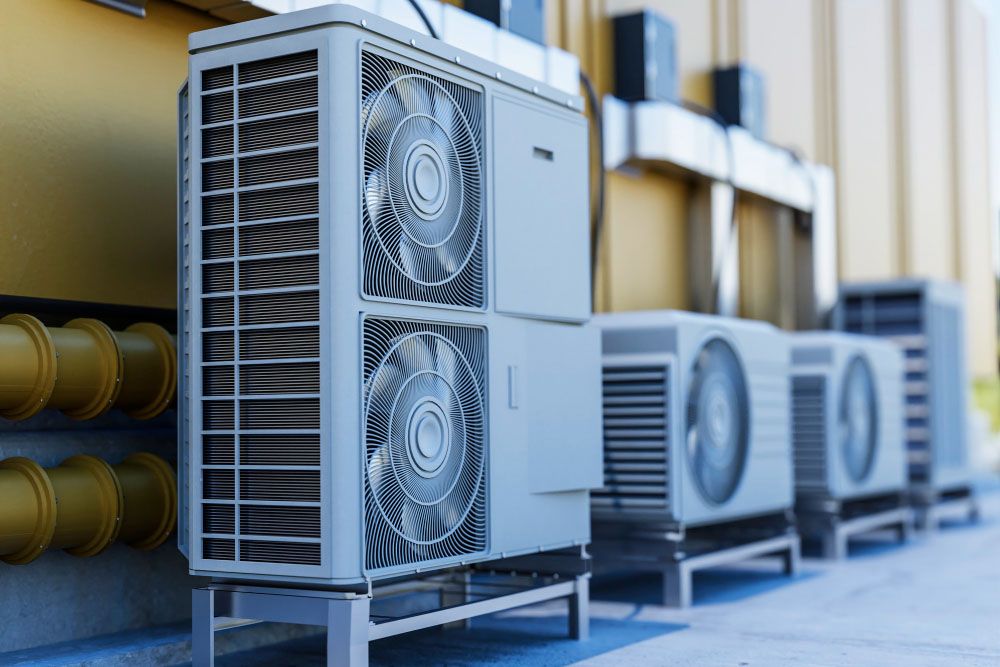How to Choose the Right Type of HVAC System

Choosing the right HVAC (Heating, Ventilation, and Air Conditioning) system is crucial for maintaining comfort and energy efficiency in your home or business. This comprehensive guide will help you make an informed decision by discussing various types of HVAC systems, their benefits, and what you need to consider when shopping for HVAC supplies in Central Florida.
Understanding HVAC Systems
Before we get into the specifics, it’s essential to understand what an HVAC system does. HVAC systems are responsible for heating, cooling, and ventilating your indoor spaces. They regulate temperature, humidity, and air quality to create a comfortable living or working environment.
Types of HVAC Systems
There are several types of HVAC systems available, each with its own set of benefits and drawbacks. Here are the most common options:
1. Split Systems
Split systems are the most common type of HVAC system. They consist of two main components:
- Indoor Unit: This includes the evaporator coil and an air handler.
- Outdoor Unit: This houses the compressor and condenser coil.
Benefits
- Versatility: Suitable for most homes and businesses.
- Energy Efficiency: Modern split systems are highly energy-efficient.
- Cost-Effective: Generally more affordable than other types.
Drawbacks
- Installation: Requires extensive ductwork, which can be costly and invasive.
2. Hybrid Split Systems
Hybrid split systems are similar to traditional split systems but offer a unique advantage—they can switch between gas and electric power.
Benefits
- Energy Savings: Can switch to the most efficient energy source.
- Environmentally Friendly: Reduces carbon footprint.
Drawbacks
- Initial Cost: More expensive to install than standard split systems.
- Complexity: Requires a more complicated setup.
3. Ductless Mini-Split Systems
As the name suggests, these systems don’t require ductwork. Instead, they use individual air handling units for each room.
Benefits
- Flexibility: Ideal for homes without existing ductwork.
- Energy Efficiency: Avoids energy loss associated with ductwork.
- Easy Installation: Less invasive and quicker to install.
Drawbacks
- Cost: Higher upfront cost compared to split systems.
- Aesthetics: Wall-mounted units may not suit everyone’s taste.
4. Packaged Systems
Packaged systems combine all heating and cooling components into one unit, typically installed on the roof or ground level.
Benefits
- Space-Saving: Ideal for homes with limited indoor space.
- Ease of Maintenance: All components are housed in a single unit.
Drawbacks
- Energy Efficiency: Often less efficient than split systems.
- Climate Suitability: Better suited for mild climates.
5. Geothermal Heat Pumps
Geothermal heat pumps use the stable temperature of the ground to heat and cool your home.
Benefits
- Energy Efficiency: Extremely efficient and eco-friendly.
- Longevity: Long lifespan compared to other systems.
Drawbacks
- Cost: High initial installation cost.
- Installation: Requires significant land and specialized installation.
Choosing the Right HVAC System
Choosing the right HVAC system involves more than just picking the type you like best. Here are some critical factors to consider:
1. Climate
The climate in Central Florida is warm and humid, which means you’ll need a system that excels in cooling and dehumidification.
2. Home Size and Layout
The size and layout of your home will significantly impact your HVAC needs. Larger homes with multiple rooms may benefit from a ducted system, while smaller homes might find a ductless system more efficient.
3. Energy Efficiency
Energy efficiency is crucial for reducing your utility bills and environmental impact. Look for systems with high SEER (Seasonal Energy Efficiency Ratio) ratings.
4. Budget
Your budget will play a significant role in your decision. While more efficient systems may have higher upfront costs, they often save money in the long run.
5. Maintenance Needs
Consider how much maintenance each type of system requires. Systems with fewer components or those housed in a single unit may be easier to maintain.
Benefits of Working with Discount Air Supply
When it comes to HVAC supplies in Central Florida, Discount Air Supply is your go-to source. Here’s why:
1. Wide Variety of Products
We offer a broad range of HVAC systems to meet your specific needs. Whether you’re looking for a split system, a ductless mini-split, or a geothermal heat pump, we’ve got you covered.
2. Expert Curation
Our team of experts curates the best products in the market, ensuring you get top-quality supplies that offer excellent performance and durability.
3. Tasting Notes Included
We provide detailed information and recommendations for each product, making it easier for you to choose the right system for your home or business.
4. Exclusive Deals
Subscribers get access to exclusive deals and discounts, making it even more affordable to upgrade your HVAC system.
5. Community Engagement
Join a community of like-minded individuals who are passionate about maintaining the perfect indoor environment. Share tips, ask questions, and get advice from experts and fellow customers.
Conclusion
Choosing the right HVAC system for your home or business in Central Florida doesn’t have to be daunting. By understanding the various types of systems and considering factors like climate, home size, and budget, you can make an informed decision.
For top-quality HVAC supplies in Central Florida, contact Discount Air Supply today. We’re here to help you find the perfect system to keep your indoor environment comfortable and efficient.